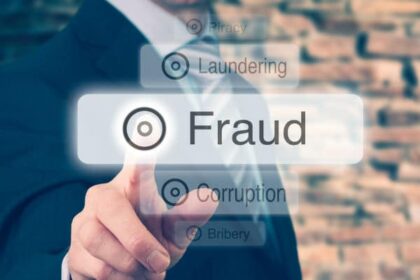In a significant victory against healthcare fraud, four pharmacy owners have been sentenced to federal prison for their roles in a multimillion-dollar conspiracy targeting Medicare, Medicaid, and Blue Cross Blue Shield of Michigan. The case, prosecuted by the U.S. Department of Justice (DOJ), underscores the federal government’s intensified efforts to combat fraudulent billing practices that drain taxpayer-funded programs. With combined losses exceeding $13 million, this scheme highlights vulnerabilities in the healthcare system and the critical role of whistleblowers, investigators, and prosecutors in holding bad actors accountable.
This in-depth analysis explores the timeline of the fraud, the defendants’ sentencing, the investigative process led by the FBI and HHS-OIG, and the broader implications for pharmacies and healthcare providers.
Key Defendants and Sentencing Details
The four pharmacists, operating across Michigan and Ohio, exploited their positions to bill insurers for medications never dispensed to patients. Below is a breakdown of their roles and sentences:
- Raef Hamaed (Maricopa County, Arizona)
- Sentence: 10 years in prison (handed down January 8, 2025).
- Role: Mastermind behind the conspiracy across all five pharmacies—Eastside Pharmacy, Harper Drugs, Wayne Campus Pharmacy (Michigan), Heartland Pharmacy, and Heartland Pharmacy 2 (Ohio).
- Tarek Fakhuri (Windsor, Ontario, Canada)
- Sentence: 7 years in prison (January 13, 2025).
- Role: Orchestrated fraud at Harper Drugs, Wayne Campus Pharmacy, and Heartland Pharmacy. Convicted of an additional count of healthcare fraud.
- Kindy Ghussin (Greene County, Ohio)
- Sentence: 5 years and 5 months in prison (February 6, 2025).
- Role: Managed fraudulent billing at Wayne Campus Pharmacy and both Heartland Pharmacy locations.
- Ali Abdelrazzaq (Macomb County, Michigan)
- Sentence: 2 years in prison (January 15, 2025).
- Role: Participated in the conspiracy at Wayne Campus Pharmacy.
The disparities in sentencing reflect the scope of each defendant’s involvement, with Hamaed receiving the harshest penalty for spearheading the scheme.
The Fraudulent Scheme: How It Worked
According to trial evidence, the defendants submitted false claims to Medicare, Medicaid, and Blue Cross Blue Shield of Michigan for prescription medications that were never dispensed. Key tactics included:
- Phantom Billing: Creating records for expensive medications (e.g., insulin, immunosuppressants) that patients never received.
- Shell Pharmacies: Using multiple pharmacy locations to avoid detection and amplify fraudulent claims.
- Patient Exploitation: Leveraging stolen or purchased patient information to submit claims without consent.
The scheme persisted for years, with fraudulent funds funneled into personal accounts and business expansions.
Investigation and Prosecution: A Collaborative Effort
The case was spearheaded by the DOJ’s Health Care Fraud Strike Force, a specialized unit established in 2007 to tackle systemic fraud. Key players included:
- FBI Detroit Field Office: Tracked financial transactions and digital footprints linking the pharmacies to fraudulent claims.
- HHS-OIG: Analyzed billing patterns and identified irregularities in Medicare/Medicaid reimbursements.
- DOJ’s Fraud Section: Prosecuted the case, leveraging laws like the False Claims Act and Anti-Kickback Statute.
Quote from Supervisory Official Antoinette T. Bacon (DOJ):
“This sentencing sends a clear message: Those who exploit federal health programs for personal gain will face severe consequences. Our strike forces are relentless in protecting taxpayer dollars.”
Impact on Healthcare Systems and Taxpayers
The 13millionlossrepresentsjustafractionoftheestimated13millionlossrepresentsjustafractionoftheestimated30 billion annual cost of healthcare fraud in the U.S. The repercussions extend beyond finances:
- Eroded Trust: Patients and providers suffer from diminished confidence in healthcare systems.
- Higher Premiums: Insurers offset losses by raising premiums, burdening families and businesses.
- Strained Resources: Funds diverted from legitimate care needs, such as underserved communities.
Legal Precedents and the Health Care Fraud Strike Force
Since 2007, the DOJ’s Strike Force has charged over 5,800 defendants in 27 federal districts, recovering billions through initiatives like:
- Data Analytics: Mining Medicare claims to identify outlier billing patterns.
- Coordination: Partnering with state Medicaid Fraud Control Units and private insurers.
- Whistleblower Incentives: Rewarding insiders who report fraud through the False Claims Act.
This case aligns with the DOJ’s 2021 revision to the False Claims Act, prioritizing cases involving “egregious” fraud.
Lessons for Pharmacies and Healthcare Providers
To avoid similar legal pitfalls, pharmacies should:
- Conduct annual audits of billing practices.
- Train staff on compliance with anti-fraud laws.
- Implement robust record-keeping systems.
- Report suspicious activity through HHS-OIG hotlines.
Quote from HHS-OIG Special Agent Mario Pinto:
“Proactive compliance isn’t optional—it’s a necessity. Pharmacies must prioritize transparency to maintain the integrity of federal programs.”
Conclusion: A Turning Point in Healthcare Accountability
The sentencing of Hamaed, Fakhuri, Ghussin, and Abdelrazzaq marks a pivotal moment in the fight against healthcare fraud. As the DOJ continues to expand its Strike Force operations, providers nationwide must heed this warning: Fraudulent practices will be uncovered, and penalties will be severe.
For more information on reporting healthcare fraud, visit the DOJ’s Health Care Fraud Unit at www.justice.gov/criminal-fraud/health-care-fraud-unit.













